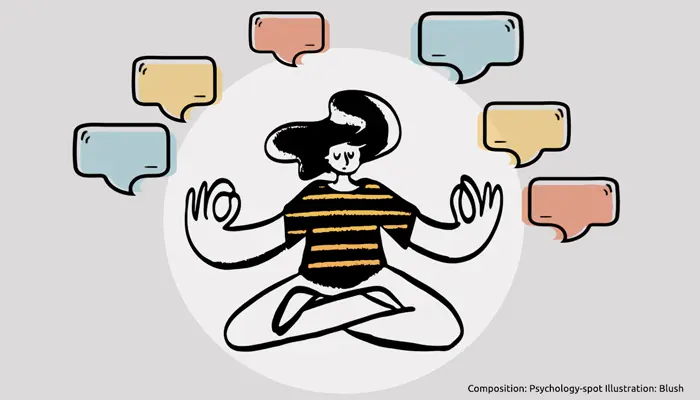
Interpersonal relationships are a huge source of satisfaction and happiness, but are also the main cause of dissatisfaction and unhappiness. We should not be surprised that all phenomena and situations have two faces, usually opposed. Therefore, one of the keys to happiness is to learn to ignore the words, attitudes and behaviors of many people.
In fact, there are moments when ignoring is a matter of mental health because there are attitudes that can destabilize or hinder and preventing us from moving on and reaching our potential. Realizing that we are fueling toxic relationships, in which we ourselves are the main victims, is the first step to get rid of the network we fell into.
Ignoring is an art
“The story says that once, a man approached Buddha and, without saying a word, spat in his face. His disciples became very angry.
Ananda, the nearest disciple, asked Buddha:
– Give me permission to give this man what he deserves!
Buddha wiped himself calmly and replied to Ananda:
– No. I’ll talk to him.
And joining the palms of his hands in reverence, he said to the man:
– Thank you. With your gesture you allowed me to see that anger abandoned me. I am extremely grateful to you. Your gesture has also shown that Ananda and the other disciples can still be angered by anger. Thank you! We are very grateful to you!”
Obviously, the man did not believe what he heard, he felt moved and sad.
This story shows us what exactly ignoring is, a word that often has a negative meaning and can make us feel “bad people” by ignoring others.
Ignoring simply means not to allow that words, attitudes, and behaviors of others can affect our inner equilibrium. You do not have to resort to veiled violence or aggressivity, but just create a protective case around you.
It means learning to ignore certain people at certain times, and it is not even necessary to get away from them because, after all, we all have lights and shadows. Ignoring is not a form of revenge or a way to make that the others feel inferior, it’s just a way to protect ourselves.
3 situations that you have to learn to ignore
1. Destructive criticisms. When criticisms are not meant to help us improve, but only to discourage us and make us feel inferior, we should ignore it. Do not let others judge you without putting themselves in your shoes, and don’t allow their criticisms to hurt you.
2. Bad actions. If a person behaves badly with you, do not let his behavior alter your psychological balance, because then he will have achieved his goal. Remember that you can only be hurt by what you allow it. If you notice a bad action, review your expectations about that person, and go ahead.
3. Manipulation. Some people will try to control you through emotional manipulation. It’s important to be aware of it and learn how to avoid comments that make you feel responsible or guilty, to make you decide as you never would. When you learn to ignore those comments, you become truly free to decide every step of your life.
Build your shield with “Radical Acceptance”
We are so accustomed to react that we turn spontaneously angry when someone behaves badly or get sad when we are criticized. In fact, these reactions are normal, we must not pretend to be like the Buddha of the tale, the problem is when they last longer than they should and end up hurting us.
Learning to ignore is a process that requires preparation and a profound change of attitude. Even though it may seem like a contradiction, effectively ignoring does not mean closing in ourselves, but the opposite: open up completely to the world. A very simple and powerful technique to do so is “radical acceptance“.
This technique is part of the Dialectical Behavior Therapy, developed by psychologist Marsha M. Linehan of the University of Washington, and focuses on emotional regulation by enhancing skills such as tolerance of anguish and full consciousness, so this also has its roots in Buddhist philosophy.
Radical Acceptance means accepting completely everything without judging. In practice, many of the things that people say or do bother us because do not match our expectations, somehow we refuse to accept those words, attitudes or behaviors. This refusal is the flame that nourishes frustration, resentment, hatred or sadness.
When we practice the Radical Acceptance, we simply assume what has happened without getting into value judgments. Assuming a psychological distance creates a shield around us that gives us the ability to react to this situation so as not to be emotionally damaged.
Source:
Robins, C. J. et. Al. (2004) Dialectical behavior therapy: Synthesizing radical acceptance with skillful means. En Mindfulness and acceptance: Expanding the cognitive-behavioral tradition (30-44). Nueva York: Gilford Press.



